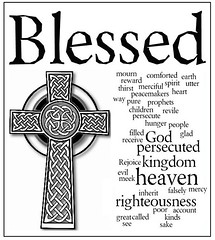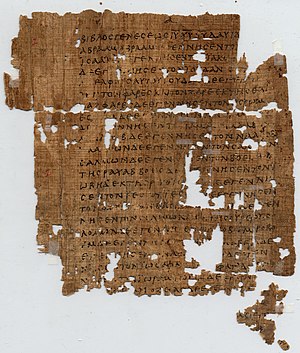 Betrayed by Judas! post by QuineHappy is the one who is afflicted (Matthew 5:10-12)
Betrayed by Judas! post by QuineHappy is the one who is afflicted (Matthew 5:10-12)This is not a pleasant passage. It speaks of persecution. We are persecuted because of all kinds of reasons. Every time I fly I feel like I’m being persecuted because I’m too tall. Sometimes I’m just too dull, and don’t get things, I just don’t get it, and feel like people treat me differently because I’m just too dumb. Other times I feel like people avoid me because they think I’m too smart. Some of you feel like you are treated unfairly because you are too short. Or maybe because your not from around here, and so foreigners are treated with suspicion. Maybe because you’re white or maybe because your black, or maybe because your Asian you feel the pain of discrimination. Maybe because your married with 2.3 kids and can’t fit in with the single crowd you work with, or maybe because your single and feel estranged from the married folks. Maybe because you’re a woman that you sense unfair treatment, or you’re a man and the object of reverse discrimination.
But when Jesus says, “Blessed are the persecuted” he is referring to none of these reasons for feeling oppressed, for he includes the little, yet defining phrase, “because of me.” This is persecution because you’re a Christian. Not only because you follow God as a disciple, but this is persecution because of your witness for the Lord. Others see your light; others know your stand on Christ, and reject you for it.
What could that phrase mean, “because of me?” How is one persecuted because of Christ? What does that look like? He gives us a clue—look to the prophets. Why did they experience persecution? They were persecuted because of their message!
Ezekiel could be used as one example. God warned Ezekiel that the people may not listen but oppose him (Ezekiel 2:1-8). But the Lord is saying to him, “Don’t be afraid of the others, be afraid of not obeying me!” If God were speaking to the church like He spoke to Ezekiel, we may hear Him say, “I have called each of you to minister to others, now do it! Don’t be afraid of what they may think. I have given you deacons and you elders responsibility to lead this church, to move it forward. I have given you the responsibility to make decisions and implement them. Don’t be afraid of what people may think. Be afraid of me. Likewise, I have called you leaders of the small groups to lead; I have called you youth workers to reach out and transform the lives of our young people, I have called all of you to minister—now take hold of your ministry. Don’t be afraid of others. Be afraid of me.
The Lord warned Ezekiel about the sin of lethargy and self-consciousness. Being overly self -conscience and worried about others will destroy you. God challenges us to be worried about what He thinks.
Listen to Blaise Pascal:
“There is a virtuous fear which is the effect of faith, and a vicious fear which is the product of doubt and distrust. The former leads to hope as relying on God, in whom we believe; the latter inclines to despair, as not relying upon God, in whom we do not believe. Persons of the one character fear to lose God; those of the other character fear to find Him.”
Ezekiel preached because he feared God more than he feared the response of the people. He warned Israel of her sin and of her complacency before God. He warned them of the evil going on in their midst and doing nothing about it. How did they respond? First his wife dies as an object lesson for the people of Israel. Then he is exiled. He is abandoned, and, dies in obscurity, alone, somewhere outside Babylon in some Chaldean village. No friends, no companions. He serves as our example.
Likewise Isaiah could be used as an example. His was not exactly a popular message (1:2-4). Comparing verses 10 – 16, if Isaiah were speaking to us he would say, “You lift up your voices to greet one another, but your vocal chords are still vibrating from words of slander. You gather together for celebrations and holidays, but I detest your mockery holidays. You turn to me in song singing together, but it is a hideous noise to me. You lift up your palms in prayer, but your hands and fingers are dripping with the putrid filth of your sin.
What is this but the old sin of hypocrisy? Napoleon well stated it when he wrote, “The people to fear are not those who disagree with you, but those who disagree with you and are too cowardly to let you know it.” Of hypocrisy among Christians John Milton noted, “Satan was the first that practiced falsehood under saintly show.” With a writer’s touch Oscar Wilde wrote of it this way, “I hope you have not been leading a double life, pretending to be wicked but being really good all this time. That would be hypocrisy.”
Isaiah told Israel to “Stop doing wrong. Learn to do what is right.” (1:17) Israel was so worried about appearance that they forgot what God called them to do. They were to be a light to the Gentiles, a beacon where people could hone in on and find the Lord. But they were covered in hypocrisy.
What happened to Isaiah? How did the people respond to his message? Reliable ancient Jewish sources write that Isaiah was tied down and cut in half by a wooden saw. They hated him and killed him for his message. He is an example to us. Jesus says, they hated the prophets before you.
What about those who followed after the prophets? What happened to the disciples, for instance? Here is a quick summary:
It is uncertain what happened to Matthew. He ministered in Palestine, Ethiopia, Macedonia, and in the Euphrates Persian area. Some accounts say he died a natural death, whereas others say he was executed in Persia.
After many years of ministry Peter was crucified in Rome in 67 A.D.
Andrew was likely forced to leave Jerusalem and ministered in Galatia, and then the coast of the Black Sea. He passed into obscurity.
The Apostle James was beheaded by King Herod Agrippa in A.D. 44.
John fled Jerusalem to Ephesus, but he was arrested there and finally exiled and died alone on the Island of Patmos.
Philip, was also forced to leave Jerusalem. It is unclear what happened to him. Some tradition asserts he was murdered, others say he died in obscurity.
Judas, not Judas Iscariot, together with Simon the Zealot, were executed in Persia.
Bartholomew was executed while ministering in Armenia.
Thomas became a missionary to India. No one knows exactly what happened to him.
The record for others in addition to the disciples is equally compelling.
There is strong historical tradition that Barnabas went back to his homeland of Cyprus, and continued to preach the word. But on that Island a group who opposed him killed him.
After leaving his ministry in Corinth under turmoil, the great preacher Apollos couldn’t be compelled to return even by Paul (1 Cor 16). For some reason some of the Corinthians strongly objected to his preaching and divided the church over it.
For his preaching Paul was ridiculed, laughed at, beaten, stoned, left for dead. He was ultimately arrested not once but twice and finally beheaded in the capital city of Rome.
Jesus said: “Blessed are the persecuted on account of me, for your reward in heaven is great.”














